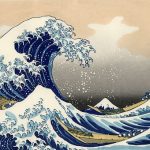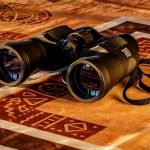小樽商科大学過去問|2017年第2問 問題
小樽商科大学 過去問 2017年 第2問 問題
第2問 Read the text below. Following the text are ten statements. Five statements are false. Write the numbers of the false statements in the brackets on your answer sheet and rewrite the statements in English to make them true. (50点)
It was a bright Brazilian morning on December 10, 1977 and we were waiting to take off in a six-passenger plane provided by my missionary agency. The pilot, Dwayne Neal, put the aircraft through its preflight inspection. He walked around the plane and checked to see how well the load was balanced. He checked for external signs of damage. He checked for water in the fuel tank. He tested the action of the propeller. This was a routine that has become as normal to me now as brushing my teeth before going to work, but then it was my first time.
As we prepared to take off, I thought hard about the Pirahas, the tribe of Amazonian Indians I was going to live with. What was I going to do? How should I act? I wondered how the people would react to seeing me for the first time and how I would react to them. I was going to meet people different from me in many ways —- some that I could expect, others that I could not. Well, I was flying there to do more than just meet them, actually. I was going to the Pirahas as a missionary. My income and expenses were to be paid by churches in the United States so that I could “change the Pirahs’ hearts” and persuade them to worship the god I believe in, to accept the morality and the culture that goes along with believing in the Christian god. Even though I didn’t even know the Pirahas, I thought I could and should change them. This is the main aim of most missionary work.
Dwayne sat down in the pilot’s seat and we all bowed our heads while he prayed for a safe flight. Then he shouted, “Livre!” (“Stand clear” in Portuguese) out the pilot’s window and started the engine. As the engine warmed, he spoke with Porto Velho’s air-traffic control and we began to move. Porto Velho, the capital of the Brazilian state of Rondonia, was to become my base of operation for all future Piraha trips. At the end of the dirt runway, we turned around and Dwayne revved up the engine. We sped off, the rust-red earth of the gravel runway becoming blurry and then falling away quickly beneath us.
I watched as the jungle began to completely cover the cleared land around the city. The open spaces around Porto Velho became smaller as the trees became more numerous. We flew across the mighty Maderia River and the transformation was complete —- a sea of green broccoli-like trees stretched out in all directions. I thought about the animals that might be down there right now, just below us. I wondered, if we crashed and I survived, whether I would be eaten by jaguars —- there were plenty of stories about crash victims killed not by the crash but by such dangerous animals.
I was going to visit one of the least studied people in the world, speakers of one of the world’s more unusual languages. Piraha isn’t known to be related to any other living human language. I didn’t know much about it except how it sounded on tapes and that previous linguists who had studied the language and the people had decided to work elsewhere. It sounded like nothing I had ever heard before. The language, it seemed, was extremely difficult.
rev: to increase the running speed of an engine
gravel: small stones used to make rough roads
blurry: unclear
linguist: a person who researches languages
Statements:
(1) Before take-off, the pilot made sure the plane was in good condition.
(2) The writer was travelling around the Amazon region on an adventure trip.
(3) The writer was well prepared to meet the Piraha people as they were basically the same as him.
(4) The writer’s aim was to learn the Piraha’s language and try to change their beliefs.
(5) The writer was not paying for this trip by himself.
(6) The writer was working for the Brazilian government.
(7) The writer would be seeing Porto Velho again.
(8) If they crashed into the jungle, the writer thought they would have a good chance of survival.
(9) The Piraha people have been studied so much because their language is not uncommon.
(10) The writer had heard the Piraha language before this trip.










